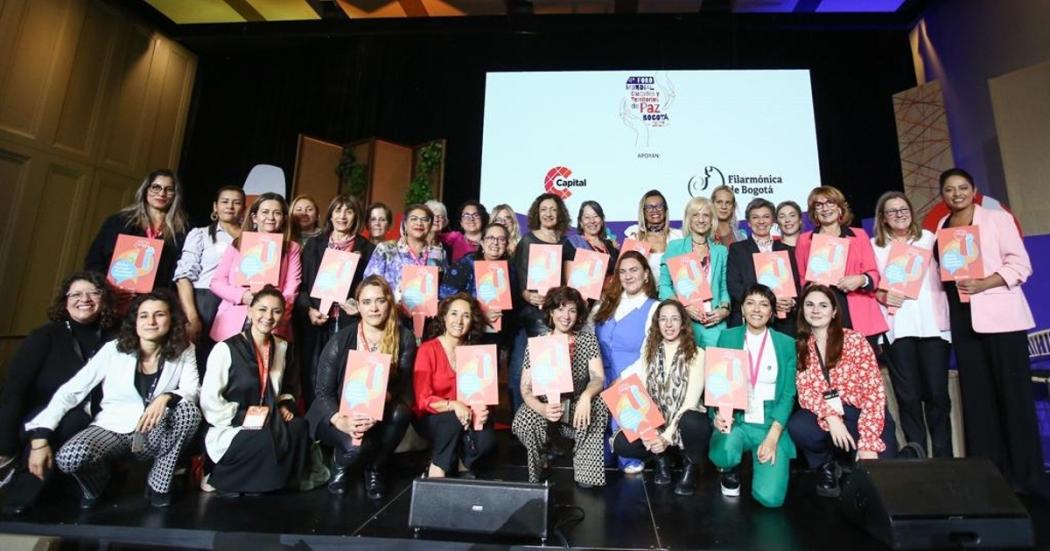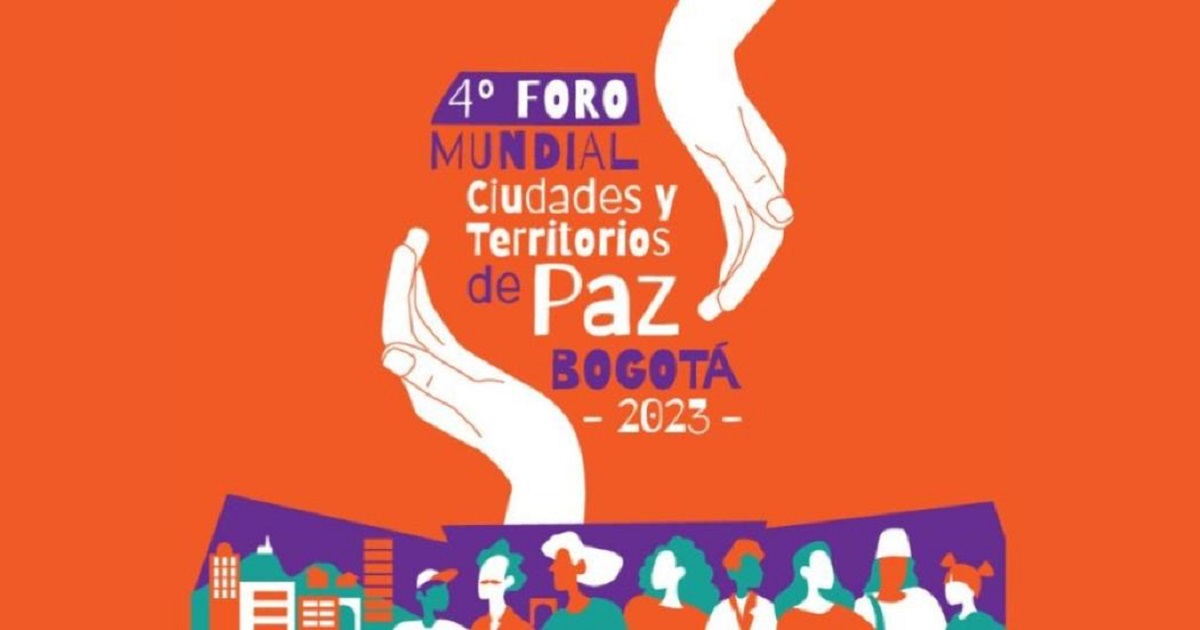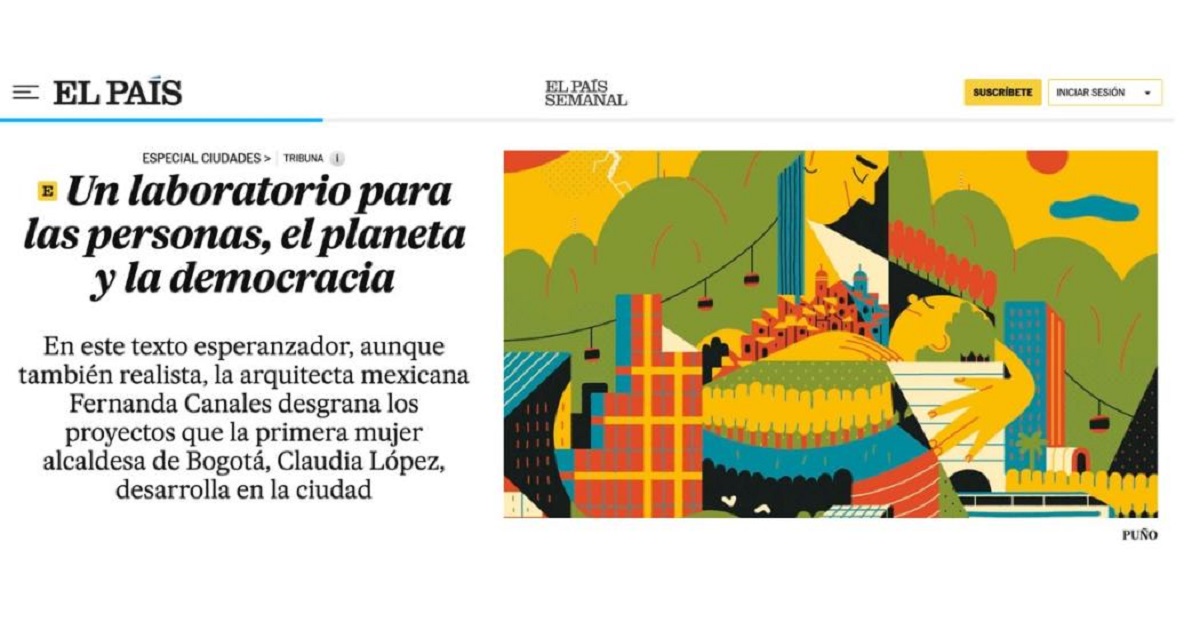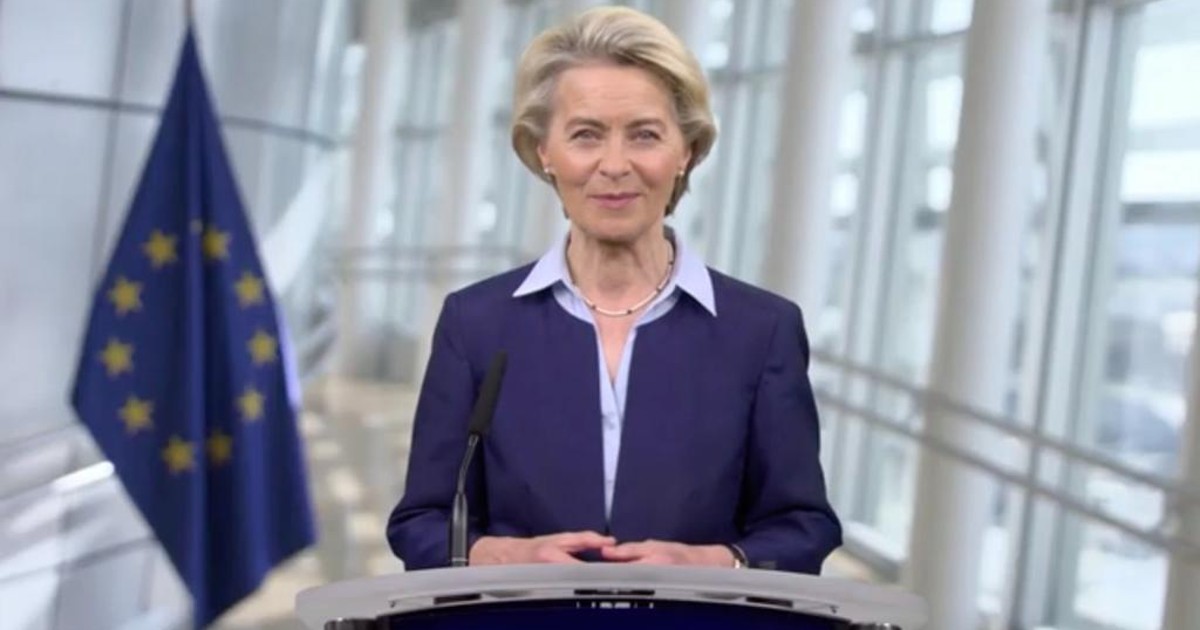As part of the 4th World Forum on Cities and Territories of Peace held in Bogotá, Mayor Claudia López was joined by Pablo Vázquez Camacho, Mexico City's Deputy Secretary of Citizen Participation and Crime Prevention; Candice Welsch, Director of UNODC for the Andean Region and the Southern hemisphere; Óscar Escobar, Mayor of Palmira (Colombia); and María Victoria Llorente, Director of the Ideas for Peace Foundation, on the panel "Causes and Effects of the Increase in Multicrime in Cities Affecting Social Peace."
During this session, the panelists explored effective strategies for preventing and resolving conflicts at the local level and shared a range of experiences in building territorial peace.
Mayor López emphasized that the causes of multicrime lie in the lack of opportunities in societies with deep inequality gaps. She stated that one of the factors that affected the most the social peace in Bogotá is violence against women: "The level of violence is alarming, which is why it is necessary to strengthen spaces for transforming the 'machismo' culture."
In the following tweet, Mayor Claudia López provides details about the first day of the 2023 World Forum on Cities and Territories of Peace:
Nuestra primera jornada del 4o Foro Mundial Ciudades y Territorios de Paz 2023 termina con una visita al @centromemoria y a la exposición #ResistoLuegoExisto, que nos recuerda a las víctimas del conflicto y las acciones emprendidas para la construcción de paz.
— Claudia López Hernández (@ClaudiaLopez) June 28, 2023
Muchas gracias a… pic.twitter.com/Qobs7WkIQv
For example, she highlighted that Bogotá now has the "Purple Line" a toll-free hotline where women who are victims of violence can receive 24 hours per day assistance from a team of psychologists, social workers, lawyers and nurses.
The Mayor also mentioned that the Secretary of Security has launched the "Purple Command", a specialized group of female police officers to address cases of violence against women. Additionally, she emphasized that Bogotá has created the "Calm Line" to address the emotional challenges of men while transforming their masculinity. During the panel she commented, "more than 20,000 men have called in a year to acknowledge that they have problems with their emotions and have begun a process of transformation against machismo."
Regarding security issues, Mayor Claudia López stated that one of the daily challenges she faces is fighting theft and assaults on individuals, as well as the transnational crime that affects different countries in Latin America. In Bogotá, for example, it has been established an Unified Information System, which enables the understanding and intervention in the functioning of illegal markets and criminal groups that drive several crimes in the city.
This expansion of transnational criminal organizations is drived by the drug trafficking business, which locally finds inminent facilitation in the perpetration of micro-trafficking markets, human trafficking, thefts, and migrant smuggling, among others.
Candice Welsch, Director of the United Nations Office on Drugs and Crime (UNODC) for the Andean Region and the Southern Hemisphere, also participated in the panel. She pointed out that these transnational groups have networks not only in Latin America but also in some European countries.
She mentioned that these small enclaves operating in cities commit crimes such as arms trafficking, human trafficking, and illegal mining, among others. "Their goal is illicit income; they use everything to store money and commit other convergent crimes such as money laundering to undermine the govern capacity."
Pablo Vázquez Camacho, Mexico City's Deputy Secretary of Citizen Participation and Crime Prevention stated that the world is currently experiencing the phenomenon of the commodification of violence, and the major challenge for governments is to increase the presence of the State in territories.
"Violence becomes an endless source of social trauma, an endless cycle of social deterioration" he said.
During his intervention, Mayor of Palmira, Óscar Escobar, mentioned that in Colombia, young people are the "cannon fodder of violence" and explained that his southwest municipality faces a coexistence problem with crime and criminality, "42% of young people state that they have a family member or friend who has been in prison or committed a crime. When we normalize crime and wrongdoing, that becomes the path for many things," expressed the Mayor.
Co-Learning Laboratory
In the afternoon, the Bogota Mayor participated in the Co-Learning Laboratory, "Towards Feminist Municipalism: Institutionalizing Women's Rights and Eradicating Macho Violence." In this space, the city's leader referred the Bogota Care System as the city's commitment to a model of shared responsibility that eliminates the burden of care work on women.
The goal of the Care System is to contribute to equal opportunities for women by expanding and improving the institutional offer of care services. This aims to reduce women's total working time, redistribute unpaid care work with men, and establish mechanisms for its appreciation and recognition.
The Mayor emphasized that historically, women have had caregiving roles, and ideally, everyone should learn to care in the 21st century, not only for the well-being of women but also for the well-being of men.
She stated, "men will be much happier when they learn to care. The empathy, instinct, and human sense that it will bring to their lives will transform them."
During the intervention of Mayra Mendoza, Mayor of Quilmes (Argentina), she expressed that feminism should not be romanticized in cities. On the contrary, it should strive for identity representation in order to institutionalize it.
Mendoza said, "In that institutionalization, we need to think about everyone and be able to exercise feminism from our decision-making positions, to discuss and break certain paradigms and structures of the patriarchal politics that have left thousands of our inhabitants behind."
Clara Brugada Molina, Mayor of Iztapalapa (Mexico), stated that this laboratory of experiences is a unique opportunity to bring the issue of violence against women to the public agenda. She said, "first, we need to transform the lives of women within families. 70% of cases of sexual violence happen within the home, so any public policy must take that into account."
In conclusion, Reem Alsalem, United Nations Special Rapporteur on Violence against Women and Girls, expressed her support for ensuring that the voices of this Forum effectively and with dignity reach central Governments.
Visit to the Center for Memory, Peace, and Reconciliation
To end the day, the international guests visited in Bogotá the Center for Memory, Peace, and Reconciliation. They had the opportunity to appreciate the exhibition 'Resisto luego existo' (Resist then I Exist), an artistic intervention that seeks to understand Bogotá as a territory of individual and collective construction for peace and reconciliation.
The exhibition recognizes the city as a representative space of social resistance, where significant events, initiatives, and memorable experiences converge. It serves as a space dedicated to promoting peace.









